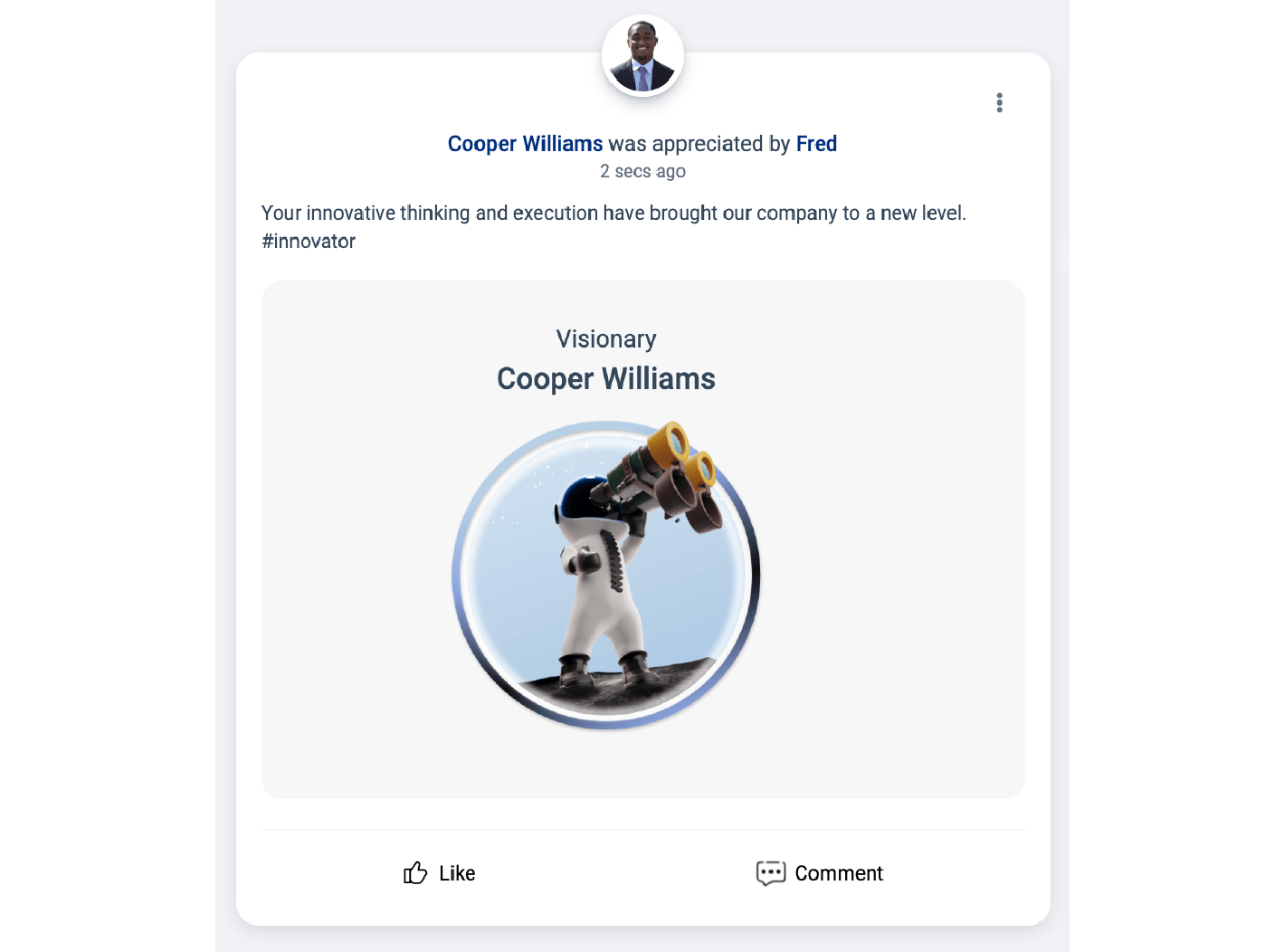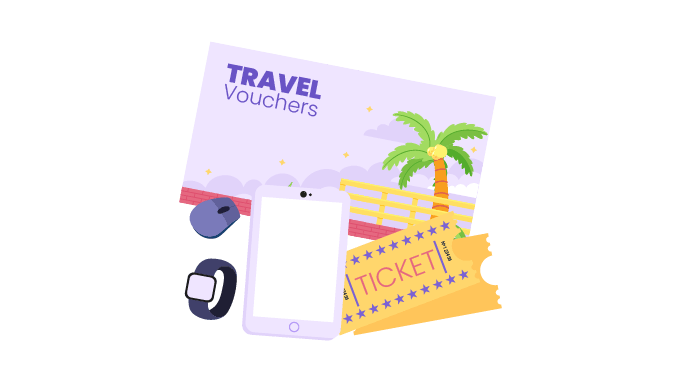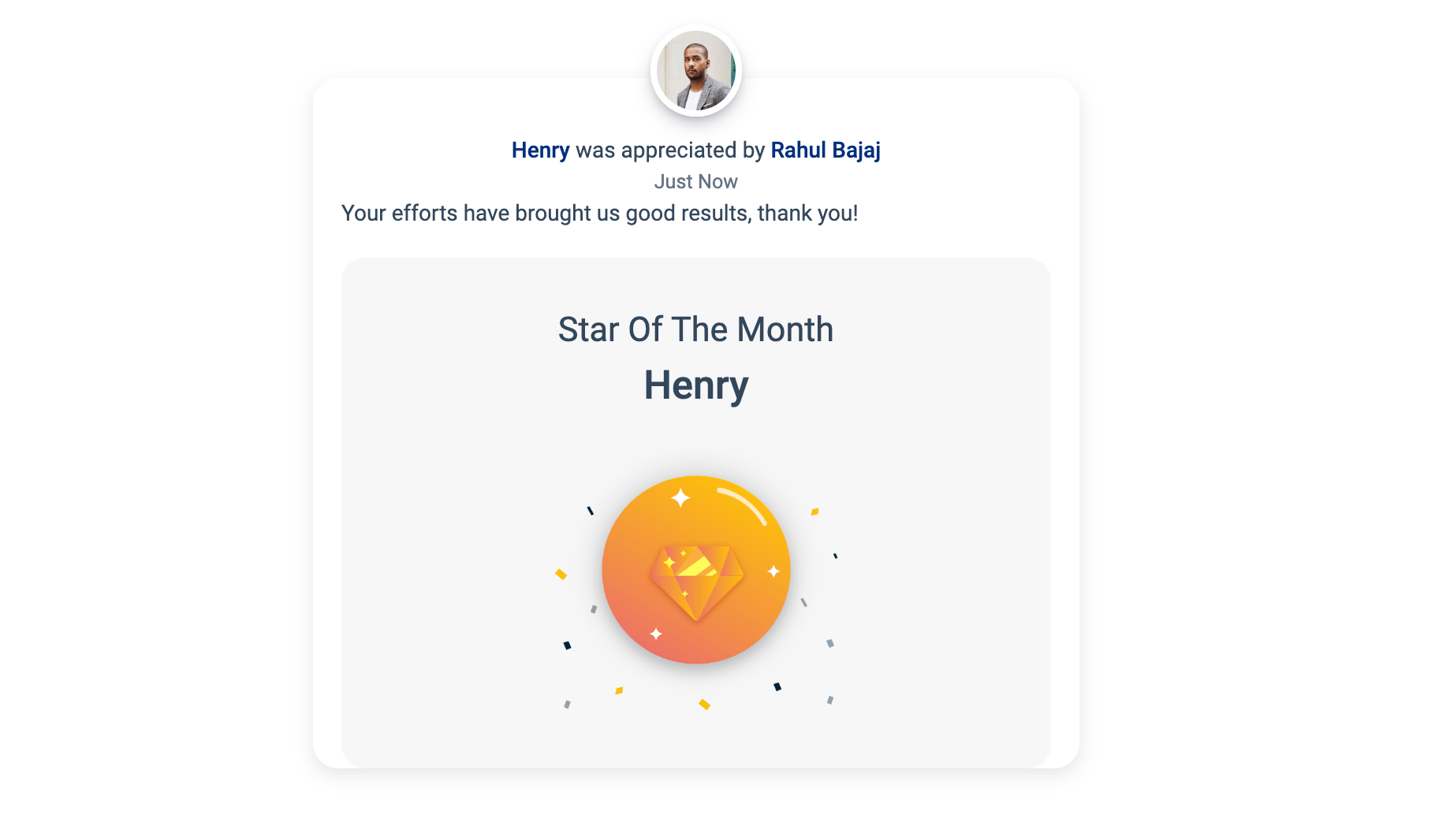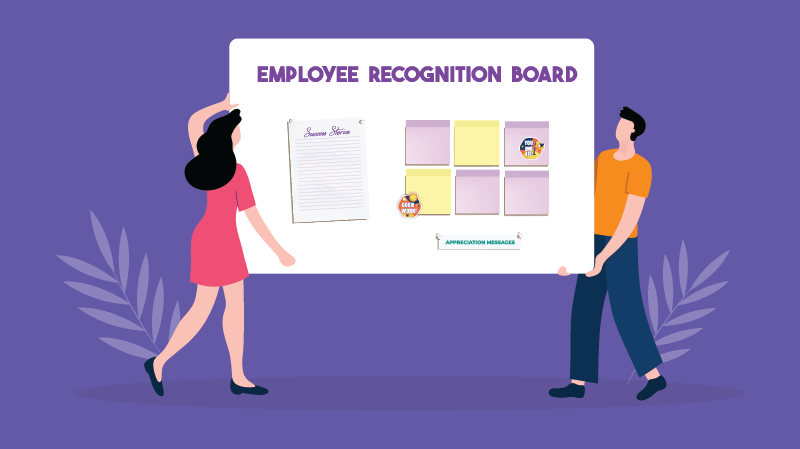Top 17 Non-monetary Incentives To Motivate And Retain Your Employees
According to an SHRM study, non-cash rewards can improve productivity by as much as 44% in some organizations.
In today's competitive business environment, organizations face the challenge of attracting, engaging, and retaining top talents.
While financial rewards are critical, a range of non-monetary incentives complement them. And it should align with individual preferences while enhancing the employee experience.
In this blog, we will explore a list of impactful incentives that are non-monetary. The idea is to motivate and retain employees without breaking the bank. Let's delve in!
Key Takeaways
- Understanding the Significance of Non-monetary Incentives For Employees
- 17 Non-monetary Incentives for Employees That Work
- Looking at the Benefits of Non-monetary Incentives
- How to Design Non-Monetary Incentive Program?
Top 17 Non-monetary Incentives To Increase Employee Engagement
1. Flexible Work Schedules

Giving employees the ability to decide when and where they can work is a tremendous non-monetary reward. Flexible work schedules allow employees to balance their work and personal lives better. It helps in maintaining a healthy work-life balance.
Providing employees with options, such as work from home or setting flexible working hours, is a powerful approach to enhancing job satisfaction and employee productivity.
2. Provide Additional Time Off

Who doesn’t love an extra day off? Getting a day off as a reward will surely make employees feel recognized for their work and dedication.
Providing extra vacation days, personal days, or paid time off as a reward contributes to a positive and motivated workforce and fosters employee loyalty.
3. Provide Time for Volunteer Work

Providing opportunities to participate in community service or charity during work hours fosters a sense of purpose and social responsibility among employees. It also allows them to give back to the community.
You can organize a volunteer day where employees spend time working together on a local community project. This approach recognizes the importance of meaningful work beyond financial rewards.
4. Provide Learning Opportunities

Supporting employees with accessible training plans, workshops, and accredited courses is crucial for their professional and personal development. By making such resources available, you enhance their skills and demonstrate a genuine commitment to their growth and development.
5. Peer-to-Peer Recognition

Encouraging employees to recognize and appreciate each other's contributions. This is a powerful incentive that helps in cultivating a supportive workplace culture that fosters peer-to-peer recognition.
This approach shifts the dynamics of acknowledgment from a top-down model to one that includes colleagues acknowledging each other's efforts. By empowering employees to recognize and express gratitude to each other builds a sense of camaraderie and mutual respect within the team.

Source: Vantage Rewards by Vantage Circle
6. One-on-one Meeting

One-on-one meetings serve as powerful non-monetary incentives in the workplace by offering personalized attention and support. Recognizing and appreciating an employee's contributions during these sessions can boost morale, while providing constructive feedback and coaching.
These meetings also present an opportunity for open communication, allowing employees to express concerns or ideas in a safe environment.
7. Experiential Rewards

An experiential reward is an event or experience that an employee earns. Whether it's tickets to a concert, a weekend getaway, or a day at the spa, these experiences are appreciated by employees as thoughtful gestures.
Offering unique experiences as rewards allows them to create lasting memories. Moreover, it lets them have a good time without worrying about what it costs.
8. Let Employees Have More Autonomy at Work

Empowering employees to make decisions and take ownership of their work fosters a sense of autonomy and responsibility. When employees have the freedom to approach their work independently, they are more motivated and driven to excel.
Instead of micromanaging, reward your employees for taking the lead on projects. This autonomy will boost confidence and contribute to higher levels of employee engagement within the workforce.
9. Pair Employees with Mentors

Pairing employees with mentors can foster a culture of continuous learning, support, and career development. The intrinsic benefits can contribute to a positive and motivated workforce.
Offering mentorship not only supports your employees in their professional growth but also contributes to their success within the organization. It goes beyond traditional rewards and fosters a culture of shared knowledge and achievement.
10. Give Employees Leadership Opportunities

Empowering employees with leadership opportunities, even on smaller projects, enables them to showcase their capabilities.
Employees gain valuable experience in decision-making, problem-solving, and project management by taking on leadership responsibilities. It cultivates a pool of capable leaders, which is crucial for the long-term success of an organization.
11. Provide Employees with Wellness Solutions
Providing employees with wellness solutions as a non-monetary incentive contributes to a healthier and more productive workforce. It positively impacts the growth and development of the organization.
For instance, companies can introduce wellness programs that include fitness classes or mental health resources. They can also actively support their employees' holistic well-being by investing in corporate wellness apps like Vantage Fit, which promotes healthier lifestyles and habits.
12. Employee Feedback Implementation

Establishing a company culture that values employees' input and ideas cultivates a sense of belonging and engagement. When employees feel that their opinions matter, they are more committed to the company's mission and vision.
For instance, regularly holding brainstorming sessions where employees are encouraged to share their ideas and suggestions can contribute to the company's growth.
13. Employee Awards

Receiving recognition through awards provides employees with a sense of validation and accomplishment. It acknowledges their hard work, dedication, and contributions, boosting their morale and job satisfaction.
Introducing awards such as star performers or other accolades can provide a visible and meaningful way to acknowledge employee achievements. It also creates a sense of healthy competition and motivation among employees.

Source: Vantage Rewards
14. Casual Dress Day

Allowing more casual attire in the workplace on certain days is a simple yet effective way to enhance the work environment. This offers employees the freedom to dress in a more relaxed manner, promoting a comfortable atmosphere.
A casual dress day can acknowledge the importance of a healthy work-life balance by creating a less formal setting and reducing the stress associated with strict dress codes. This non-monetary incentive can increase employee morale and a positive company culture.
Make sure that the Dress Code Adheres to Workplace Norms.
15. Recognize Employee Achievements
Recognizing and acknowledging employees' achievements in a public setting is a powerful motivator. It can be in the form of a social feed or in newsletters. The focus is to boost the employees' confidence and inspire others to strive for excellence.
Moreover, you can also implement rewards and recognition platform like Vantage Circle for seamless acknowledgment and rewards. Its user-friendly interface enables quick and easy recognition with just a few clicks, fostering a culture of appreciation and engagement.
16. Well-Designed Workspace

Creating a comfortable and aesthetically pleasing work environment serves as a highly effective non-monetary reward for employees. Designing workspaces with ergonomic furniture, ample natural light, and visually appealing elements can contribute to a positive atmosphere.
The attention to comfort and aesthetics communicates a commitment to creating a workplace where employees enjoy spending their time. This helps in fostering a positive organizational culture and increases employee engagement.
17. Skill-sharing Sessions

Empowering employees to share their expertise through informal sessions helps promote knowledge exchange and a sense of value within the workplace. These sessions provide a platform for employees to showcase their skills and share experiences with their colleagues.
By encouraging informal knowledge-sharing, organizations can foster a culture of continuous learning and collaboration. It further helps in strengthening team bonds as colleagues can learn from one another.
Top 5 Benefits of Non-monetary Incentives

1. Makes Recognition Memorable
Non-monetary incentives offer a distinct advantage - they are memorable. While a cash bonus might get lost in the monthly paycheck, a non-monetary incentive stands out, such as public recognition or a trophy. It creates a lasting memory and reinforces positive behavior.
2. Attracts Gen-Z and Millennial Employees
Non-monetary awards appeal to Gen Z and Millennial employees because they value experiences and recognition over traditional financial incentives. Personalized acknowledgment and career development opportunities demonstrate a commitment to their individual growth and well-being. This aligns with their desire for meaningful work and a positive workplace culture.
3. Non-monetary Incentives Have Emotional Value
Non-monetary incentives tap into emotions, creating a stronger bond between employees and the organization. Personalized gestures, like handwritten notes or a team outing, convey appreciation and build a sense of belonging. These incentives go demonstrate that their efforts are genuinely valued and not just quantifiable in monetary terms.
4. Acknowledgeable and Comfortable to talk About
Non-monetary incentives are easily shareable and create positive conversations. When employees can comfortably discuss the perks they receive, it fosters a culture of openness and appreciation.
Furthermore, encouraging employees to share their experiences with non-monetary incentives on a company platform or during team meetings creates a positive buzz. It opens up channels for others to express their ideas, creating a culture of acknowledgment.
5. Increases Employee Productivity
Non-monetary incentives wield a powerful influence on employee productivity by tapping into intrinsic motivations. Recognition programs and flexible work arrangements convey a genuine appreciation for employees' contributions.
When employees feel their efforts are recognized and that their professional development is prioritized, they are more likely to be motivated, engaged, and committed. This approach not only boosts individual performance but also cultivates a positive workplace culture that enhances overall productivity.
Design an Effective Non-Monetary Incentive Program

Step 1: Understand Employee Preferences and Goals
The first critical step is understanding what truly motivates and engages your employees. Conduct comprehensive employee surveys and focus groups asking about their preferences, goals, and what incentives they find most valuable.
Additionally, take the time to analyze workforce demographics, such as age, interests, etc, to identify trends. Developing a deeper understanding of your employees' needs and perspectives is vital for creating a program that incentivizes performance, loyalty, and engagement.
Step 2: Ensure Fairness and Accessibility
Fairness is the bedrock of any successful incentive program. Design it with inclusivity in mind, ensuring that all employee groups can participate.
Furthermore, ensure incentives are accessible across all levels of your organization. Whether it’s a new intern or a seasoned manager, everyone should feel the excitement of earning incentives. Ensure accessibility across all levels, fostering a sense of unity and equality.
Step 3: Develop Diverse and Inclusive Incentives
Rather than a one-size-fits-all reward system, develop diverse incentives that appeal to various interests and support employees' overall well-being. Create a spectrum of rewards, from public recognition to professional development opportunities and wellness programs.
Diverse offerings can cater to various interests and contribute to the overall well-being of your employees. Furthermore, align these incentives with your company's culture and values, reinforcing a sense of purpose and connection.
Step 4: Communicate Clearly and Transparently
Communication is key to the success of any incentive program. Effectively announce the program to all employees through email, newsletters, team meetings, etc.
Provide guides, toolkits, and training so employees understand how to participate and earn incentives.
Since transparency is paramount, be open about the program's goals and the benefits employees can expect. This clarity will foster trust and enthusiasm among your workforce.
Step 5: Regularly Monitor, Evaluate, and Adapt
Regularly monitor participation rates and gather feedback from your employees. Access the impact on productivity, retention, absenteeism, and other relevant metrics to make informed adjustments.
If certain incentives show low engagement, be willing to tweak the program accordingly. A program that is based on feedback remains relevant and continues to be a driving force behind employee motivation.
The Bottomline
In conclusion, non-monetary incentives offer a multifaceted approach to employee motivation and satisfaction. From flexible work schedules to leadership opportunities, these rewards create a positive and motivating work environment that goes beyond financial transactions.




















